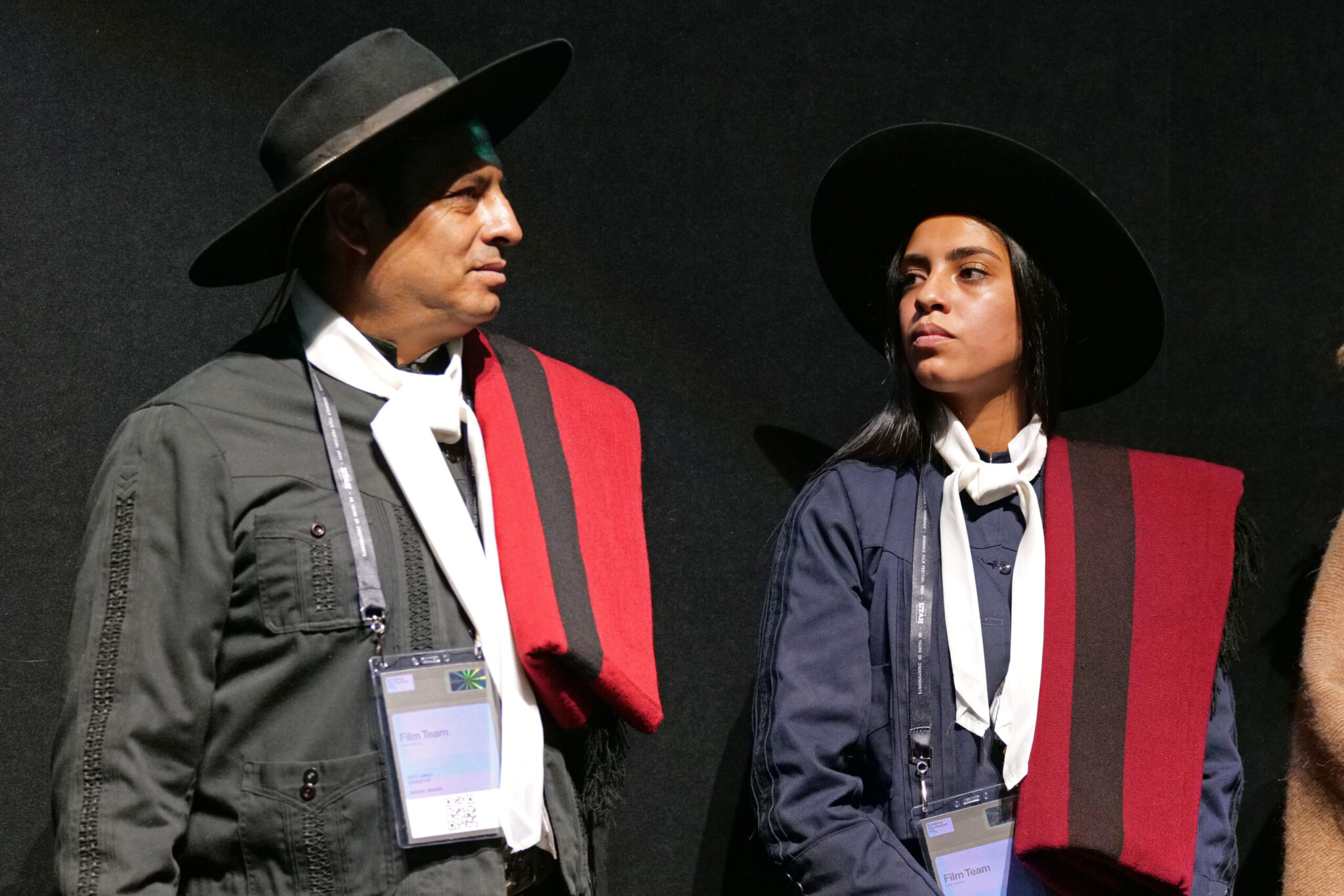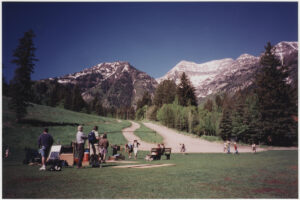PARK CITY, UTAH – JANUARY 19: Tati Gonza and Guada Gonza attend the 2024 Sundance Film Festival “Gaucho Gaucho” premiere at The Ray Theatre. (Photo by Donyale West/Shutterstock for Sundance Film Festival)
By Annie Lyons
It was a warm Park City welcome for two-time Sundance Film Festival alums Michael Dweck and Gregory Kershaw at the January 19 premiere of Gaucho Gaucho at The Ray Theatre. The screening of their U.S. Documentary Competition film, which depicts traditional Argentine cowboys (aka gauchos) in striking black and white cinematography, culminated in a standing ovation for the filmmakers.
But even such enthusiasm pales in comparison to the crowd reception for two of the gauchos themselves, Tati Gonza and his teenage daughter Guada.
Showing their pride in traditional attire, the Gonza pair hadn’t seen the film until this moment but their reaction was clear to all. “I’m very moved, very happy. I haven’t dreamt of this,” says Guada via a translator during the post-premiere Q&A. “We feel very proud of having participated in this film,” Tati says. “It’s been really beautiful. We feel they are part of our family. We welcomed everyone. And it’s not only us here in the movie, we’re just a grain of salt. We are representing many people that participated.”
As was the case with Dweck and Kershaw’s previous collaborations The Last Race (2018 Sundance Film Festival) and The Truffle Hunters (2020 Sundance Film Festival), Gaucho Gaucho immerses audiences in an intimate community holding onto tradition. The filmmakers take a fly-on-the-wall approach, letting conversations unfold naturally over meals and casting a cinematic eye on the gauchos’ horseback riding skills.
“The way we work is that we spend quite a bit of time with people before we even have the camera with us,” Dweck explains, noting that this pre-filming process sometimes lasts months as they build trust. “What ends up happening is that there are rituals, things repeated. They eat dinner and breakfast and lunch at the same table.” Stillness and minimal editing are also essential. “As you see, the camera doesn’t move,” he says. “With the exception of the horse scenes, the camera is fixed, and it gives us the ability really to just capture these beautiful organic conversations.”

“We want to create an image that is powerful, that tells a story, that transports people,” Kershaw elaborates, “but that also creates freedom for the people that are in front of the camera so they don’t feel our presence and they can go about their lives unencumbered by filming. It’s a delicate process. It’s like a dance between our vision as directors and the world in front of [us]. We often shoot one shot a day, maybe two shots a day, so it happens very slowly. It couldn’t happen any other way.”
Gaucho Gaucho takes a multigenerational approach, showcasing both community stalwarts and younger folks like Gauda, who endures some injuries as she improves her horseback skills but never deters from her desire to be a gaucho. Beseeched by audience members for updates on her journey, she says, “You’re going to make me cry. I am really moved. It was hard at the beginning. I broke some bones. I fell once and once again, but it’s much better now. I’m enjoying it, and this is all because of my dad.”
When asked for thoughts about the future of the tradition, Kershaw remarks, “The children, the young people in this area, they want to be gauchos and they do love this culture. There are immense challenges, as you’ve seen in the film, to carrying [the tradition] on, but it’s so ingrained in their being. And the gauchos, like Tati, who are kind of leading the way are looked up to — they’re heroes. There are songs about them, and they’re celebrated throughout the community for good reasons. Because being a gaucho, it’s not just a job, it’s a code of honor that they live by.”
To see more of the magic from the 2024 Festival, click here.







